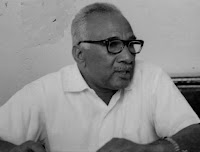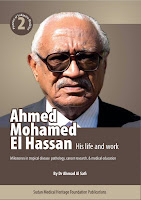داود مصطفى خالد (أول أستاذ ممتاز في كلية الطب جامعة الخرطوم)

بروفيسور داؤود مصطفى خالد (1917-2008) التحق بمدرسة كتشنر الطبية في 1936م تخرج في 1940م التحق بالمصلحة الطبية السودانية في 1943. عمل في الخرطوم، أم درمان، مروي، سورسيبو، ود مدني، وعطبرة. نال عضوية كلية الأطباء الملكية، لندن في 1952. عمل مدرساً غير متفرغ بكلية الطب جامعة الخرطوم حتى 1958 عين محاضر أول في الطب الباطني في 1958. رقي أستاذاً في الطب الباطني في 1965. عين عميداً لكلية الطب جامعة الخرطوم في 1974. عين نائباً لمدير جامعة الخرطوم في 1974. منح لقب أستاذ ممتاز في 1975. أنشأ قسم الأمراض العصبية في مستشفى الشعب في 1985.





